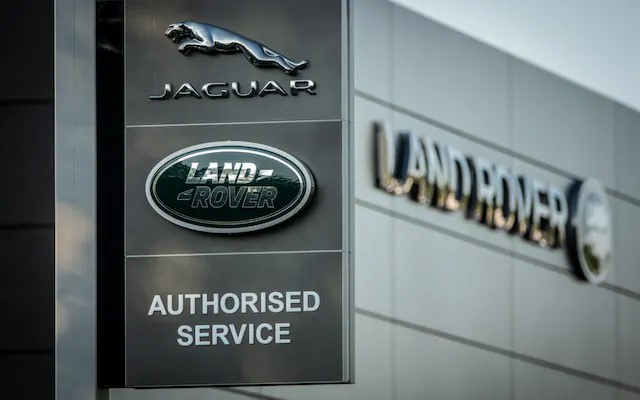The UK government has announced a £1.5 billion loan guarantee to rescue Jaguar Land Rover (JLR) after a cyberattack crippled the automaker’s production lines for nearly a month. The intervention, delivered through UK Export Finance, comes as the company — owned by India’s Tata Motors — struggles to restore operations disrupted since August 31.
Officials say the bailout is aimed at protecting jobs, stabilising JLR’s supply chain, and preventing further damage to Britain’s car industry. But the move has also ignited debate over whether taxpayers should foot the bill for a private corporation’s failure to secure its own digital infrastructure.
The cyber breach forced JLR to halt output across several UK factories and overseas operations. Suppliers reported delayed payments and thousands of workers were left uncertain about shifts. The disruption was so severe that UK car production dropped sharply in August compared to last year.
JLR has now restarted limited production, including at its key engine plant, but recovery is expected to take weeks. Analysts note that the company lacked cyber insurance — a gap that left it fully exposed to the financial fallout of the attack.
A Controversial Lifeline
The £1.5 billion loan, underwritten by the state, is repayable over five years. Supporters argue it was unavoidable: without intervention, JLR risked insolvency, with ripple effects on small and medium-sized suppliers already laying off staff.
Critics, however, warn of “moral hazard” — the risk that companies may underinvest in cybersecurity, expecting government support when things go wrong. For some, the bailout sets a worrying precedent: should public money protect private firms from digital negligence?
The episode has widened the debate about how governments handle large-scale cyber incidents. JLR’s paralysis highlights how deeply dependent modern industries are on digital systems. When those systems collapse, the economic shock spreads fast — from factory floors to financial markets.
The government is now under pressure to tighten regulations on corporate cyber resilience. Proposals include mandatory insurance coverage and stricter reporting rules for critical industries such as automotive, energy, and finance.
Why it Matters
For Britain, the bailout underscores that economic security is increasingly tied to cybersecurity. But for countries with smaller economies, particularly across Africa and Asia, the JLR case raises uncomfortable questions: if a similar cyberattack hit a “national champion,” would governments have the capacity — or political will — to bail them out?
As carmakers, banks, and even hospitals become prime targets for hackers, the JLR crisis may mark a turning point. It is no longer just about protecting data. It is about whether digital vulnerabilities can bring entire industries to a standstill — and whether taxpayers should be left to pick up the bill.
Talking Points
Jaguar Land Rover’s collapse under a single hack shows that modern industries run on code as much as steel. If one company’s digital vulnerability can drag down national output, we need to rethink cybersecurity as infrastructure, not a backroom expense.
The UK’s £1.5B bailout may save jobs, but it also rewards a company that failed to insure itself against cyber risks. That’s like bailing out a shipowner who forgot lifeboats. In Africa, where governments already struggle with limited budgets, such a precedent would be disastrous.
Many African startups and enterprises still treat cybersecurity as a side project. If a Nigerian fintech, Kenyan telecom, or South African bank suffers a crippling hack, will the government step in with billions? Unlikely. Which means prevention is not optional — it’s existential.





